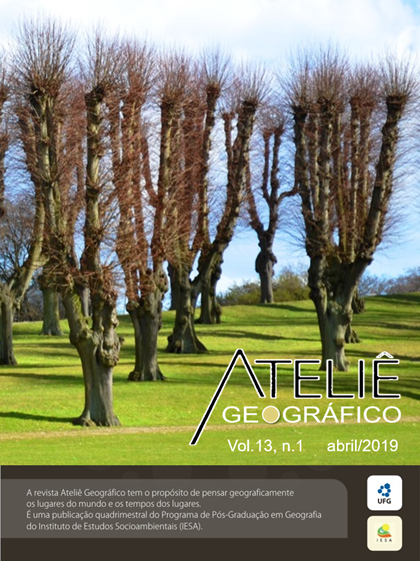The class seen as resistance to authoritarianism: thinking of a battle field in the classroom and beyond
DOI:
https://doi.org/10.5216/ag.v13i1.57382Abstract
In times when greeting torturers became a common exercise for candidates elected in Brazilian procedural democracy, denying critical thinking as maintenance of discourses and authoritarian practices is configured in a project for a nation deprived of memory. The space that is thought by and for the ruling class is one that efficiently exploits the workforce in a constant state of exception, which opposes human well-being and creativity in favor of economic growth, always insignificant in the context of structural crisis of capital. In that regard, this article argues about the importance of geography classes in opposition to authoritarianism and the dismissal of critical thinking represented by the combat to Marxism, the strengthening of agribusiness and denial of workers’ rights. Thus, it starts from the understanding that the critique of the geographical discourse involves the understanding that a theory is not formulated from the description of the immediate reality, but through the historical transformation of the real, in a continuous relationship between practice and reflection.
Keywords: Work, Space, Critical thinking, Geography classes.
Downloads
Downloads
Published
How to Cite
Issue
Section
License
Autores que publicam nesta revista concordam com os seguintes termos:- Autores mantém os direitos autorais e concedem à revista o direito de primeira publicação, com o trabalho simultaneamente licenciado sob a Licença Creative Commons Attribution que permite o compartilhamento do trabalho com reconhecimento da autoria e publicação inicial nesta revista.
- Os autores não serão remunerados pela publicação de trabalhos na Revista Ateliê Geográfico. Além disso, os conteúdos publicados são de inteira e exclusiva responsabilidade de seus autores, ainda que reservado aos editores o direito de proceder a ajustes textuais e de adequação às normas da publicação.
- Autores têm permissão e são estimulados a divulgar seu trabalho online (ex.: em repositórios institucionais ou na sua página pessoal), já que isso pode gerar alterações produtivas, bem como aumentar o impacto e a citação do trabalho publicado (Veja O Efeito do Acesso Livre).


